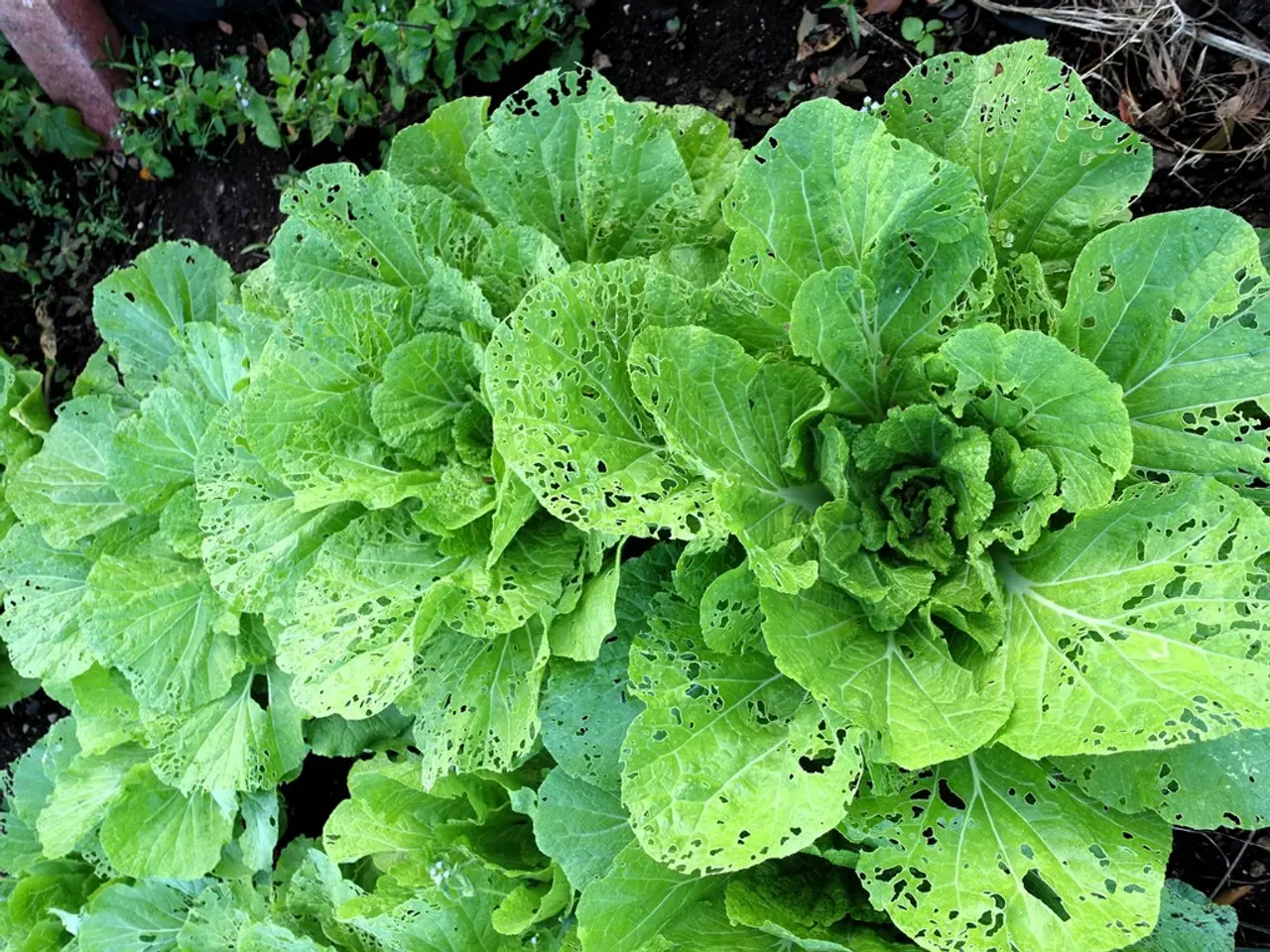Nutritious Diet for Combating Hair Loss: Foster Healthy Hair Growth from the Inside
In the quest for luscious, healthy hair, a balanced diet rich in essential nutrients plays a crucial role. Nutritional deficiencies can significantly impact hair growth, often leading to hair loss, brittleness, and slow regrowth. Here's a rundown of some key nutrients and foods that can help promote hair growth and reduce hair fall.
**Vitamin Deficiencies**
1. **Vitamin D**: This essential vitamin stimulates hair follicles and supports the hair growth cycle, making it a vital component for healthy hair [1][2].
2. **Vitamin B12**: This vitamin helps produce red blood cells that carry oxygen to the scalp, aiding in hair growth [1].
3. **Biotin**: Crucial for keratin production, a key protein in hair structure, biotin is another essential vitamin for hair health [1][2].
**Mineral Deficiencies**
1. **Iron**: Vital for hemoglobin production, which delivers oxygen to hair follicles, iron is a crucial mineral for hair growth [1][3].
2. **Zinc**: Zinc supports hair tissue growth and repair, and maintains oil glands around follicles, making it a key player in hair health [1][2][3].
**Protein Deficiency**
Hair is primarily made of keratin, a protein. A lack of dietary protein can lead to brittle hair and slow growth [3].
**Foods for Hair Growth**
1. **Pumpkin Seeds**: Rich in magnesium, these seeds support hormonal balance in women, promoting hair growth [4].
2. **Oysters**: A fantastic source of zinc, oysters help maintain a healthy scalp and promote hair growth, with zinc deficiency linked to hair loss [4].
3. **Soybeans**: Containing spermidine, a compound that prolongs the active phase of hair growth, soybeans can help promote hair growth and prevent hair loss [4].
4. **Beans**: Such as lentils, chickpeas, and black beans, are rich in protein, zinc, and other hair-healthy nutrients, essential for hair growth and the production of new hair cells [4].
5. **Seeds**: Like flaxseeds, chia seeds, and sunflower seeds, are rich in vitamin E, zinc, and selenium, supporting a healthy scalp and hair growth [4].
6. **Eggs**: Rich in protein and biotin, eggs are essential for hair growth [5].
7. **Sweet Potatoes**: Rich in beta-carotene, which the body converts into vitamin A, essential for cell growth, including hair cells [5].
8. **Berries**: Packed with antioxidants, berries protect hair follicles and promote collagen production [6].
9. **Avocados**: A great source of healthy fats and vitamin E, avocados protect hair follicles from oxidative stress [6].
10. **Spinach**: A source of Vitamin A, Vitamin C, Iron, and Folate, all beneficial for hair health [6].
11. **Fatty Fish**: Such as salmon, mackerel, and sardines, are excellent sources of omega-3 fatty acids and protein, nourishing the hair follicles and promoting hair growth [7].
12. **Nuts**: Like almonds, walnuts, and cashews, provide vitamin E, vitamin B, zinc, and healthy fats, all of which contribute to hair health [7].
13. **Sweet Peppers**: Excellent sources of vitamins C and A, sweet peppers aid in collagen production and sebum production for a moisturized scalp [7].
14. **Meat**: Such as lean beef, chicken, and turkey, is an excellent source of protein and iron, providing the building blocks for hair and delivering oxygen to the hair follicles, respectively [7].
15. **Chocolate Spread**: A product formulated with these ingredients and free from preservatives, palm oil, and refined sugar, this chocolate spread could be a tasty addition to a balanced diet [8].
16. **Traditional Foods**: Shatavari, Amla, Ashwagandha, Aloe Vera, Moringa, 7 Nuts & Seeds, Gokshura, Anise, Nagarmotha, Nutmeg, Garlic, Melon seeds, Pumpkin seeds, Cocoa, Rice bran oil, Vitamin E, and Rosemary Extract are traditionally used or scientifically proven to boost hair growth and reduce hair fall [9].
Remember, a well-rounded diet usually provides adequate nutrients for healthy hair growth. Avoid over-supplementation as excessive intake of certain nutrients can harm hair growth. If you suspect a deficiency, consult a healthcare provider for proper diagnosis and treatment.
[1] https://www.ncbi.nlm.nih.gov/pmc/articles/PMC3672765/ [2] https://www.ncbi.nlm.nih.gov/pmc/articles/PMC5664031/ [3] https://www.ncbi.nlm.nih.gov/pmc/articles/PMC3745524/ [4] https://www.ncbi.nlm.nih.gov/pmc/articles/PMC5719638/ [5] https://www.ncbi.nlm.nih.gov/pmc/articles/PMC3136578/ [6] https://www.ncbi.nlm.nih.gov/pmc/articles/PMC5664031/ [7] https://www.ncbi.nlm.nih.gov/pmc/articles/PMC5719638/ [8] https://www.ncbi.nlm.nih.gov/pmc/articles/PMC7588924/ [9] https://www.ncbi.nlm.nih.gov/pmc/articles/PMC6350034/
- Ensuring a balanced diet rich in essential nutrients, like vitamins D, B12, and Biotin,iron, zinc, protein, and various minerals, is crucial for brain development and parenting, as these nutrients are vital for overall health and wellness, including hair care and hair growth.
- Incorporating food sources rich in these nutrients, such as pumpkin seeds, oysters, soybeans, beans, seeds, eggs, sweet potatoes, berries, avocados, spinach, fatty fish, nuts, sweet peppers, meat, chocolate spread, traditional foods like Shatavari, Amla, Ashwagandha, Aloe Vera, Moringa, and rice bran oil, into one's diet can promote hair growth, aid in brain development, and support health-and-wellness.
- A well-rounded diet, accompanied by proper hair care, can contribute to brain development, nurturing the growth of healthy, luscious hair, and fostering overall well-being.




